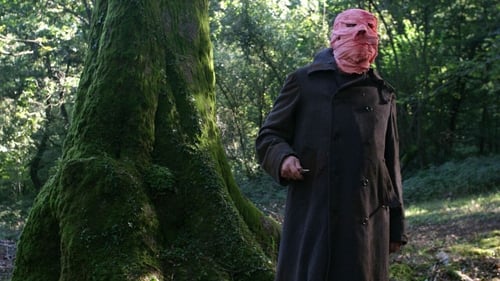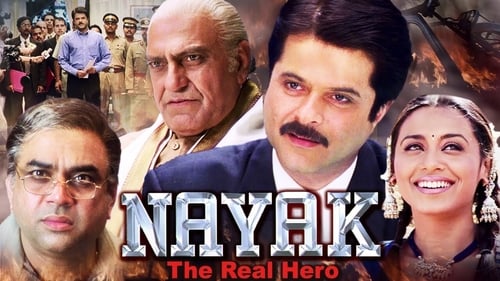Linja (2019)
"We are all stuck in a loop, called Life."
Gênero : Drama
Runtime : 4M
Director : Ajay Govind A
Sinopse
Human minds are corrupted by the thought that they are the superior one. The reality is often contradictory.

Vivemos em um mundo onde os poderosos nos enganam. Nós sabemos que eles mentem. Eles sabem que nós sabemos que mentem. Eles não se importam. Dizemos que nos importamos, mas não fazemos nada e nada muda. É normal. Bem-vindo ao mundo pós-verdade. Como chegamos onde estamos agora?

Sekiuchi, o presidente do poderoso clã Yakuza Sannokai, arma e instiga a morte entre os pequenos clãs da família e a pequena família Murase, de forma a tomar a região controlada pelo chefe Murase e centralizar em si o poder do grupo Sannokai. O filme discorre sobre traições e vinganças e é composto de cenas fragmentadas, quase sempre revelando as verdadeiras facetas das personagens.

Héctor (Karra Elejalde) um homem de meia idade, entra acidentalmente em um dispositivo que o faz viajar no tempo e retornar uma hora antes. Isso o faz encontrar a si mesmo, desencadeando situações e gerando conseqüências incontroláveis.

Logo após uma experiência que quase o levou à morte, Simon Cable (Ryan Phillippe), que está em um hospital, volta à consciência, porém sofrendo de amnésia. Os dois últimos anos de sua vida sumiram completamente da memória, apagando os detalhes de seu casamento, a morte de seu irmão e do terrível acidente de carro, o qual ele escapou por um fio. Seu médico, o Dr. Newman (Stephen Rea) começa a ajudá-lo a juntar os pedaços do quebra-cabeça. Nada parece fazer muito sentido, principalmente quando ele percebe a evidência de que Anna (Piper Perabo), sua esposa, não apenas parece odiá-lo, mas acredita piamente que Simon foi o responsável pela morte do próprio irmão.

TV reporter Shivajirao gets a chance to be the Chief Minister of Maharashtra for a day, after being challenged by incumbent Chief Minister Balraj Chauhan. After his successful one-day stint, he attempts to get back to his normal life, but it is not as easy as he thought it to be, with the lives of his near and dear ones now in danger on account of his honesty.

Madame Tang colludes and mediates between the government and the private businesses for the benefits of her all-female family. One case does not go according to plan, and an entire family close to Madame Tang fall victim to a gruesome murder. Ambition, desire and lust eventually change Tang's relationships with her own family forever.

Arguing that advertising not only sells things, but also ideas about the world, media scholar Sut Jhally offers a blistering analysis of commercial culture's inability to let go of reactionary gender representations. Jhally's starting point is the breakthrough work of the late sociologist Erving Goffman, whose 1959 book The Presentation of the Self in Everyday Life prefigured the growing field of performance studies. Jhally applies Goffman's analysis of the body in print advertising to hundreds of print ads today, uncovering an astonishing pattern of regressive and destructive gender codes. By looking beyond advertising as a medium that simply sells products, and beyond analyses of gender that tend to focus on either biology or objectification, The Codes of Gender offers important insights into the social construction of masculinity and femininity, the relationship between gender and power, and the everyday performance of cultural norms.

Durante seu primeiro dia de trabalho no turno da noite de um hotel, a jovem Amy, descobre que ocorreram diversos crimes misteriosos no local que jamais foram solucionados. Conforme ela vai se aprofundando em sua investigação, percebe que está sendo perseguida por um maníaco mascarado que pretende matá-la a qualquer custo.

At a time when powerlessness and resignation carry the day, Noam Chomsky's work is a radical antidote for all those who want to put an end to the factory of powerlessness and its intellectual media star watchdogs. Theoretician of language, born in Philadelphia in 1928, Noam Chomsky revolutionized linguistics with the "generative grammar." But Chomsky is also a political analyst involved in all political struggles for decades. His clear analysis and rational ideological mechanisms of our societies is a crucial resource for critical thinking today.

Dorival, um homem na prisão, tem apenas um desejo: tomar banho. Para alcançar seu objetivo, ele desafia o soldado, o cabo, o sargento e, finalmente, o tenente responsável pela prisão.

Aussie boys of Asian descent candidly discuss their status as a "minority within a minority".

In a photograph among journalists, writers, academics and artists was a controversial president of Mexico and the unusual guest who owes the name of this story.

A night when parasites of various green forms devour humans. A cruel food chain that never ceases, and an eternal repetition of life and death. A grotesque and strange parable drawn by Yoji Kuri. Isao Tomita's synthesizer music echoes quietly and eerily.

A naked, blood-soaked man throws a corpse into a dimly lit basement. The cadaver lands against another body.

How do you escape a loop?

Isaías nunca ouviu falar de mecânica quântica ou de universos paralelos. Esta noite a sua percepção da realidade será irremediavelmente alterada.

After years of playing second fiddle to a rival performer, a woman confronts her rival. Hoping to reason with her enemy, things grow heated and someone commits an act that may cost them their future. That is until there is a knock at the front door.

A man walks towards the camera down the end of a street to the sound of 'Jesus’ Blood Never Failed Me Yet', a composition by Gavin Bryars based on a loop of an anonymous homeless man singing the song. The man’s voice is progressively intensified by an instrumental accompaniment, which increases in density and richness, before the whole thing gradually fades out. Dwoskin’s film was produced to be shown during the premiere of Jesus' Blood Never Failed Me Yet at the Queen Elizabeth Hall, London in December 1972. For Dwoskin, it represents “… the singing voice of the last days of a London drunk (anonymous) as the orchestra raises him to heaven. The faint ghost image of a figure swims gradually to you through the grains of film low light…”

















